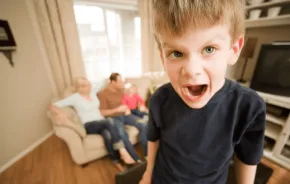 Why isn’t the world more compassionate? No small question, but I think I get it now – or at least a glimmer. I’ve just spend 90 minutes listening to the bracingly honest, fascinating views of Dr. Jennifer James, an urban cultural anthropologist, who started her lecture with a disclaimer: “I’m 65 now; I never did have a lot of time for crap!” James was about to tread where few go these days – right on the toes of accepted cultural myths about power, politics and race.
Why isn’t the world more compassionate? No small question, but I think I get it now – or at least a glimmer. I’ve just spend 90 minutes listening to the bracingly honest, fascinating views of Dr. Jennifer James, an urban cultural anthropologist, who started her lecture with a disclaimer: “I’m 65 now; I never did have a lot of time for crap!” James was about to tread where few go these days – right on the toes of accepted cultural myths about power, politics and race.
"Why is common sense not common practice?” James asks, “Why do we need the Dalai Lama to tell us the obvious? It’s about power.”
“Culture enhances and creates fear of small differences. Fear of small differences is what makes it so difficult to be compassionate. When people are under enough stress, you get tribalism.” We’ve become increasingly tribal, James says, because we’re under so much stress. That stress is caused by rapid technological change, and cultural myths that can’t keep pace. “Where we get stuck is when we change so fast,” James says. “We’re having a terrible time in the US developing new wisdom traditions.”
James says we’re at a tipping point in our country, and you can tell this by our desire to go backwards – “get rid of science!” – James says, by denying evolution, for instance. Most of the world accepts evolution as a valid theory; in this country, only 35-40 percent of us do. “People say it’s just a theory,” James says, “But so is gravity!”
“When you are really stressed, you do not feel altruistic,” James says. “In an anxious, stressful time of extraordinary change, people do not feel altruistic…To me, compassion requires a very, very high level of consciousness, which is dependent on anxiety. Anxiety disconnects your brain.”
Then she got political, talking about how our governments work to suppress compassion by first boosting our sense of victimization, intensifying tribalism (by talking about how wonderful we are), dehumanizing the enemy, and create an attitude of entitlement which allows you revenge (“So you get to torture!”). This intensifies our fear of small differences, which adds up to a fear of blurring our cultural identities. “We want to control our children’s identities and destinies, and the way you do that is to control who you extend compassion to,” James says.
Other fears that get in the way of compassion:
- Fear of trading places – “if I get too close, I might have to change places”
- Fear of the weak by the strong
- Fear of the strong by the weak
- Fear of loss of advantage – “I’m all for equality as long as I don’t lose any privileges”
- Fear of pollution – mixing with the “wrong” people
“We’re all in this together, and recognizing our common humanity requires us to get past so many fears,” James says. “But these fears are laid down so early and below consciousness…If you can’t even stop hurting yourself, I think it becomes very hard to stop hurting other people.”
And how can we solve the race issue in our country? “The short way to do it is just to fall in love with somebody of a different race!” James laughs. “But the human genome project knows who we are. Send in your scrapings. I am 60 percent Asian and 40 percent African,” says James, who has blonde hair. “We made it all up! If Caucasians were honest they would check ‘other.’”
How can you keep yourself open to feeling and developing compassion for others?
- Resist tribalism
- Cultivate public grace
- Think and teach in universal principals
- Watch out for nostalgia
- Notice how the truth changes
“A life without compassion is a life without passion,” James says. “When your stomach is full and you feel secure and know a little about who you are, kindness becomes endlessly rewarding.”











